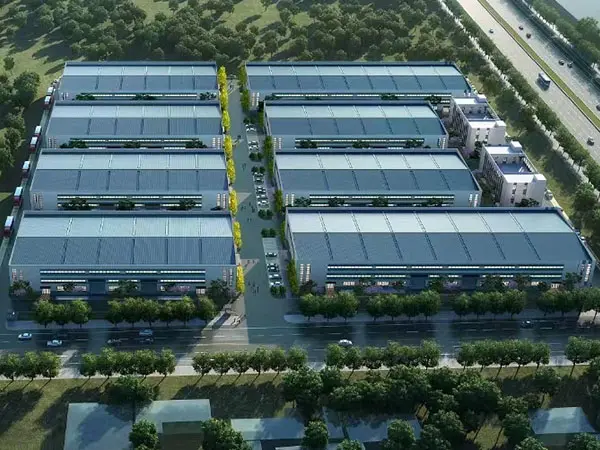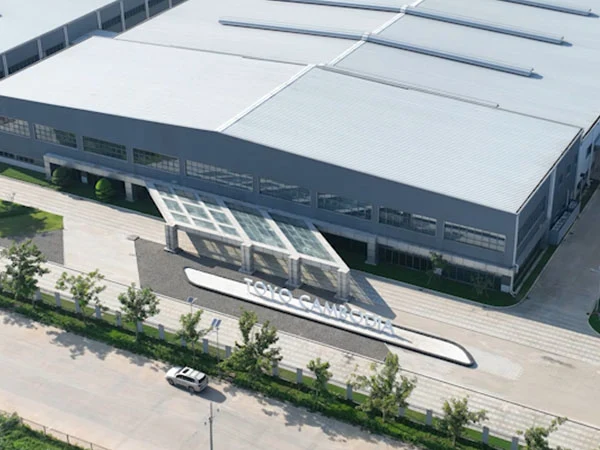Constructing a steel structure factory is a highly effective solution for modern industrial and manufacturing projects. Thanks to their exceptional durability, cost-efficiency, and fast installation timelines, steel buildings have become a preferred choice worldwide. To ensure a smooth and successful project, it is crucial to follow a well-planned, systematic construction process. Below is a comprehensive guide to the essential steps involved in building a high-quality steel structure factory.

Every successful steel structure project begins with detailed planning. During this phase:
Engineers and architects work together to develop precise structural blueprints.
Key considerations include factory workflow layout, load-bearing requirements, local building codes, climate conditions, and safety standards.
Selecting high-grade steel and reliable prefabricated components helps enhance building lifespan and structural stability.
A well-established design phase minimizes construction risks, avoids unnecessary costs, and ensures the factory meets long-term operational needs.
Before steel components can be erected, the construction site must be carefully prepared:
Land leveling and soil compaction create a stable base for the foundation.
Excavation and foundation layout are completed according to the engineering plan.
Effective drainage systems are installed to prevent water accumulation and protect the structure from moisture-related damage.
Proper site preparation is critical for ensuring both safety and construction efficiency.
Most steel factories rely on precision-fabricated components produced in controlled environments:
Columns, beams, frames, and roof trusses are manufactured accurately based on design specifications.
Anti-corrosion treatment and surface coatings extend material longevity.
Prefabrication improves quality control while significantly shortening on-site installation time.
This method greatly reduces labor costs and ensures consistency throughout the project.
A strong foundation is the backbone of any steel structure:
Concrete footings or reinforced slabs are poured to support the building’s load.
Anchor bolts are embedded to secure the steel columns.
Inspections are conducted to ensure proper alignment, stability, and compliance with engineering standards.
A reliable foundation guarantees long-term performance and structural safety.
Once the foundation is in place, the steel structure begins to take shape:
Columns, beams, and bracing components are lifted, positioned, and connected by welding or bolting.
Roof trusses, purlins, and support systems are installed to complete the framework.
Temporary supports may be used until the entire frame is stabilized.
Accurate installation ensures the structure’s strength and prevents deformation during later stages.

With the main steel frame erected, the building envelope is installed:
Wall cladding panels, insulation materials, and roofing sheets are mounted according to design requirements.
Openings for doors, windows, skylights, and ventilation systems are integrated.
Exterior protective coatings may be applied to improve corrosion resistance and enhance appearance.
High-quality cladding boosts energy efficiency and shields the factory from harsh weather.
The final stage turns the structure into a functional industrial facility:
Electrical wiring, plumbing, fire safety systems, and HVAC installations are completed.
Office spaces, production areas, flooring, and internal partitions are built.
Safety features such as emergency exits, fire alarms, and signage are added.
This phase ensures the building is fully equipped for operational use.
Building a steel structure factory requires a structured and professional approach, from initial planning to the final installation of utilities. Each step plays a vital role in ensuring durability, efficiency, and long-term performance. By understanding the full construction process, industrial developers can better manage project timelines, reduce costs, and achieve high-quality results.
For businesses seeking reliable steel structure solutions, working with experienced contractors ensures that every stage meets top engineering standards and operational demands.
Maximizing Energy Efficiency in Steel Commercial Buildings: Practical Strategies for Long-Term Savings
2026-01-28How Much Does It Really Cost to Build a Steel Structure Office Building Per Square Foot?
2026-01-23How to Plan a Commercial Steel Building Project Step by Step
2026-01-15How Long Does a Commercial Steel Building Last? An In-Depth Look Into Lifespan, Design Factors, and Long-Term Value
2026-01-09Address: No.1 Shuangxiang Road, Luoxin Industrial Park, Luoyang City
E-mail: info@hcggsteel.com
Hotline: +8618800767079

Create the greatest value for customers
Provide the best quality products and services
+8618800767079
info@hcggsteel.com
No.1 Shuangxiang Road, Luoxin Industrial Park, Luoyang City